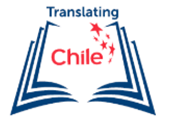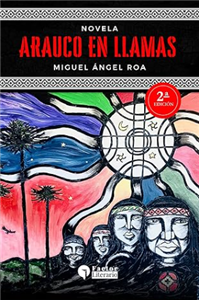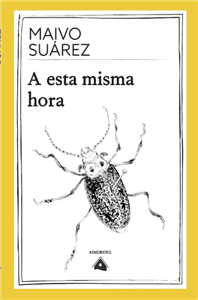Your Search Results
-
Melanie S. Wolfe
Make sure to check out the catalog for more titles. Melanie S. Wolfe is an up and coming author with four self-published books and several manuscripts in the pipeline. She writes fiction that includes a diverse cast of characters with themes that deal with real-world issues and sometimes have a light sci-fi or paranormal feel to them. Her favorite age group falls within the New Adult range but her works appeal to the older YA and adult reader as well. Melanie would like to find representation as well as negotiate domestic and foreign print, digital and audio rights/licensing on her current published works and her upcoming projects. Melanie S. Wolfe grew up between Kansas City, MO, and various places in Oklahoma (USA) where she studied Liberal Arts at the University of Oklahoma. She was a military wife for ten years and served the Army community as a Relocation Clerk while stationed in Bamberg, Germany. She currently lives in Florida with her family and is loving the beach life.
View Rights Portal
-
Promoted Content
-
Promoted ContentTeaching, Language & ReferenceNovember 2010
El Camino by Miguel Delibes
by Catherine Davies, Jeremy Squires
Upon entering the Royal Spanish Academy in 1975, Miguel Delibes delivered an address which reclaimed El camino (1950) for the emerging Green movement. With a blend of hilarity, satire, pathos and tragedy, Delibes artfully explores the process of crossing boundaries in pursuit of maturity and social advancement, whilst also implying that real education is the unfolding of the human heart among friends and sweethearts within a shared social and natural space. This new annotated version of the text comprises an introductory essay discussing green issues, attitudes towards the Spanish peasantry under Franco, and the function of the novel's subtly orchestrated comedy. It also contains explanatory notes on the text, discussion topics and an extensive Spanish-English glossary. This edition is intended primarily for English-speaking students of Spanish literature and culture at school and university. ;
-
 Trusted Partner
February 1999
Trusted Partner
February 1999Der Cimarrón
Die Lebensgeschichte eines entflohenen Sklaven aus Cuba, von ihm selbst erzählt
by Miguel Barnet, Miguel Barnet, Hildegard Baumgart, Lisa Grüneisen, Heinz Rudolf Sonntag, Alfredo Chacón, Miguel Barnet
Miguel Barnet und eine Gruppe von Ethnologen besuchten den hundertdreijährigen Esteban Montejo. Sie begegneten einem hochintelligenten, eigensinnigen Mann voller Erinnerungen an längst Vergessenes, Erinnerungen aus dem Leben der Sklaven, aus der Zeit der Abschaffung der Sklaverei auf Cuba und des Befreiungskrieges gegen die spanischen Kolonialisten. Montejo ist ein Cimarrón, ein entlaufener Sklave, der lange Jahre in absoluter Einsamkeit in den Bergen gelebt hat. Später schloß er sich den Aufständischen an, die gegen die Invasion Cubas durch die Amerikaner kämpften. Der Cimarrón entstand nach Tonbandaufnahmen von Gesprächen, die Miguel Barnet über Wochen und Monate mit Esteban Montejo geführt hat. Das überraschendste daran ist die bilderreiche Sprache dieses ehemaligen Sklaven. Von unseren Augen vollzieht sich die lebendige Vermischung von afrikanischen Mythen mit dem Katholizismus zu einer der afro-cubanischen Religionen, wie sie Barnet in seinem Buch Cultos afro-cubanos beschreibt. Esteban Montejo schildert alles von seinem persönlichen Standpunkt aus: das Leben als Sklave auf der Zuckerrohrplantage, das Leben in den Bergen, den Krieg, die Zeit, als die Spanier wohl vertrieben, aber durch die Nordamerikaner ersetzt waren. »Dieses Buch«, schrieb Lévi-Strauss, »eröffnet eine völlig neue Gattung der ethnologischen Literatur. Ihr Kennzeichen: eine Vertrautheit mit der Wirklichkeit der untersuchten Ethnie, die weit über alles früher Versuchte hinausgeht«. Die Lebensgeschichte von Esteban Montejo wurde 1971 unter dem Titel El Cimarrón von Hans Werner Henze vertont.
-
 Trusted Partner
Trusted Partner
-
 Trusted Partner
Trusted Partner
-
 Trusted Partner
Trusted Partner
-
 Trusted Partner
Trusted Partner
-
 Trusted Partner
Literature & Literary Studies
Trusted Partner
Literature & Literary StudiesPoemas Náufragos (Castaway Poems)
by Dulce María Loynaz
Book of poems written by the Miguel de Cervantes Awarded cuban poet Dulce María Loynaz.
-
 Trusted Partner
1990
Trusted Partner
1990Das Abenteuer des Miguel Littin
Illegal in Chile
by García Márquez, Gabriel / Übersetzer Langenbrinck, Ulli
-
 Trusted Partner
2024
Trusted Partner
2024A esta misma hora
by Maivo Suárez
It's summer vacation at the university, and Ana accepts her cousin Rosa's invitation to spend a few weeks with her and her daughter Belén on the other side of the Andes. She soon meets several local characters, such as the handsome Miguel, his sister Ester, and the lame Severino, who help her cope with the pain of a recent family tragedy. But an accident in the village triggers a chain of events that ultimately uncovers a shameful secret. Following her successful debut with Sara, Maivo Suárez returns with a novel that exposes social injustice. Masterfully doling out information and playing with ambiguity, A esta misma hora slowly unravels a story full of mysteries and reveals a reality that, even if we don't want to see it, surrounds us all.
-
 Trusted Partner
Trusted Partner
-
 Trusted Partner
Trusted Partner
-
 Trusted Partner
November 1983
Trusted Partner
November 1983Das Lied der Rachel
Mit einem Nachwort von Miguel Barnet. Aus dem Spanischen übersetzt von Wilhelm Plackmeyer. Das Nachwort von Miguel Barnet übersetzte Monika López aus dem Spanischen
by Miguel Barnet, Wilhelm Plackmeyer, Miguel Barnet
»Rachel«, eine mit allen Wassern gewaschene Varietésängerin, strebt früh nach Höherem, ohne es jedoch zu erreichen. »La bella de Alhambra« schwelgt in Banalitäten und Kitsch, ist – mit liberalen Einschränkungen – Rassistin, weil ihre Kundschaft rassistisch ist, orientiert sich an Horoskopen, beschäftigt sich mit fliegenden Untertassen. Ihr Bericht läßt die stickige Atmosphäre der »belle époque« des vorrevolutionären Cuba nachempfinden, vermischt die Schilderung der klassischen Straßenschlachten zwischen einheimischen und französischen Zuhältern im Viertel San Isidro, des Rassenkrieges von 1912 und der »toten Zeit« zwischen den Zuckerrohrernten mit Kosmetikkniffen, Theaterklatsch und dem täglichen Leben der Unterwelt. Nach der Revolution von 1959 entwickeln sich die Dinge ungünstig für »Rachel«: die »Häuser«, die sie mittlerweile in besagtem Viertel besitzt, werden liquidiert, ihre Karriere als »freie Unternehmerin« ist beendet.
-
 Trusted Partner
Trusted Partner
-
 Trusted Partner
Trusted Partner
Mein Leben unter Ludwig II.
Memoiren eines Leibreitpferdes. Eine Graphic Novel
by Robitzky, Miguel
1. Auflage
-
 Trusted Partner
Trusted Partner
-
 Trusted Partner
Trusted Partner
-
 Trusted Partner
FictionFebruary 2021
Trusted Partner
FictionFebruary 2021Basuras (Rubbish)
by Miguel Ángel Vallejo
A hard-boiled story set in Bogota, the capital city of Colombia where a homeless man becomes a hero for his community.
-
 Trusted Partner
March 2008
Trusted Partner
March 2008Don Quixote von la Mancha
Roman
by Cervantes Saavedra, Miguel de / Spanisch Tieck, Ludwig
-
 Trusted Partner
Trusted Partner


































